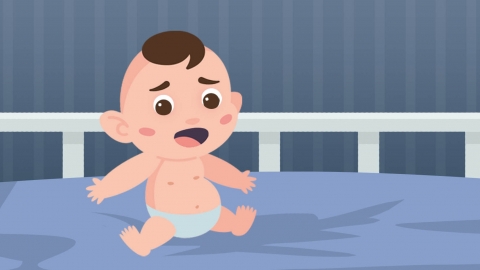What should I do if a two-and-a-half-year-old child has severe constipation?
Generally, constipation in a two-and-a-half-year-old child may be caused by insufficient dietary fiber intake, poor bowel habits, intestinal dysbacteriosis, hypothyroidism, or congenital megacolon. Treatment options include general management and medication therapy, as directed by a physician. Detailed explanations are as follows:

1. Insufficient Dietary Fiber Intake
Dietary fiber absorbs water in the intestines, increases stool bulk, and stimulates intestinal motility, thus aiding defecation. If a two-and-a-half-year-old child lacks sufficient fiber-rich foods such as vegetables, fruits, and whole grains in their daily diet, stools may become dry and hard, making them difficult to pass and resulting in constipation. Parents should ensure the child's diet contains adequate dietary fiber, including foods such as spinach, broccoli, apples, bananas, and whole wheat bread.
2. Poor Bowel Habits
Good bowel habits are essential for preventing constipation. If a child does not develop regular bowel habits or ignores the urge to defecate due to playing, watching television, or other distractions, stool may remain in the intestine too long, leading to excessive water absorption and constipation. Parents should help the child establish regular bowel habits and encourage immediate toilet use upon feeling the urge. Additionally, provide a relaxed and private environment for defecation to reduce psychological stress.
3. Intestinal Dysbacteriosis
Intestinal dysbacteriosis may be related to factors such as medication, diet, age, abnormal intestinal motility, and immune dysfunction. When the number of beneficial bacteria decreases, harmful bacteria may predominate, slowing intestinal motility and causing constipation, which may be accompanied by symptoms such as diarrhea. Treatment options include medications like Bifidobacterium triple viable powder, Saccharomyces boulardii powder, and lactobacillus tablets, as directed by a physician.
4. Hypothyroidism
Hypothyroidism may result from autoimmune diseases, surgery, or other causes. Thyroid hormone promotes intestinal motility. When thyroid hormone levels decrease, intestinal motility slows, causing prolonged stool retention and constipation. The child may also experience symptoms such as reduced appetite, weight gain, and dry skin. Treatment options include medications such as levothyroxine sodium tablets, prednisone acetate tablets, and dexamethasone acetate tablets, as recommended by a doctor.
5. Congenital Megacolon
Congenital megacolon may be associated with abnormal development of intestinal nerve migration or genetic factors. Due to the absence of ganglion cells in the intestinal tract, intestinal motility is impaired, prolonging stool retention and excessive water absorption, resulting in constipation. In addition to constipation, the child may experience symptoms such as abdominal distension and vomiting. This condition typically requires surgical treatment—transanal pull-through procedure. Postoperatively, antibiotics such as amoxicillin granules, cefradine capsules, and cefaclor granules should be used as directed by a physician to prevent infection.
Parents should ensure the child's diet is rich in dietary fiber and establish regular bowel habits. Additionally, routine health check-ups are important to maintain the child's overall health.









